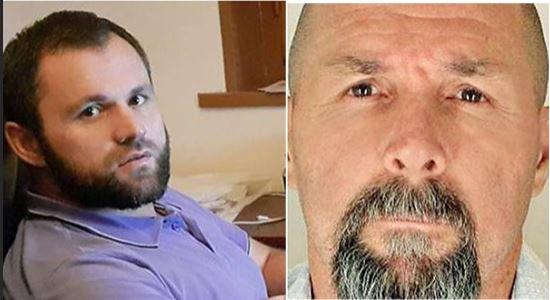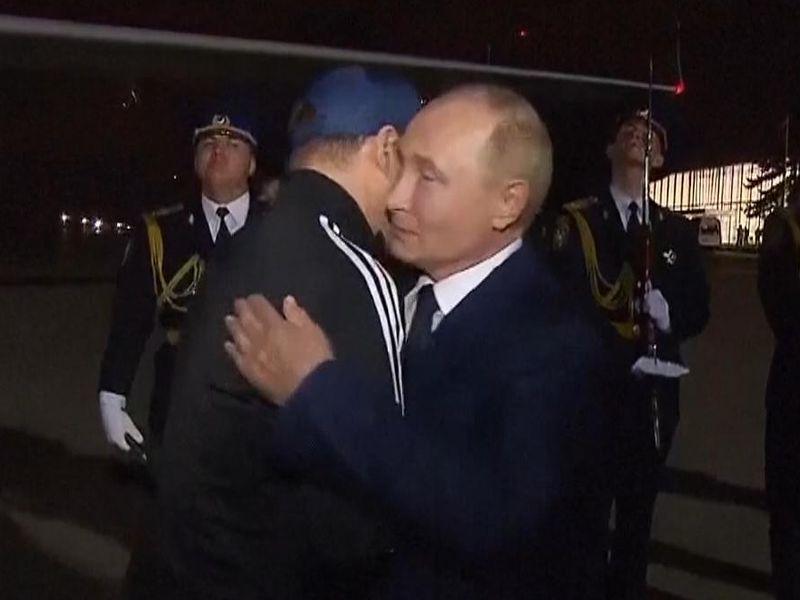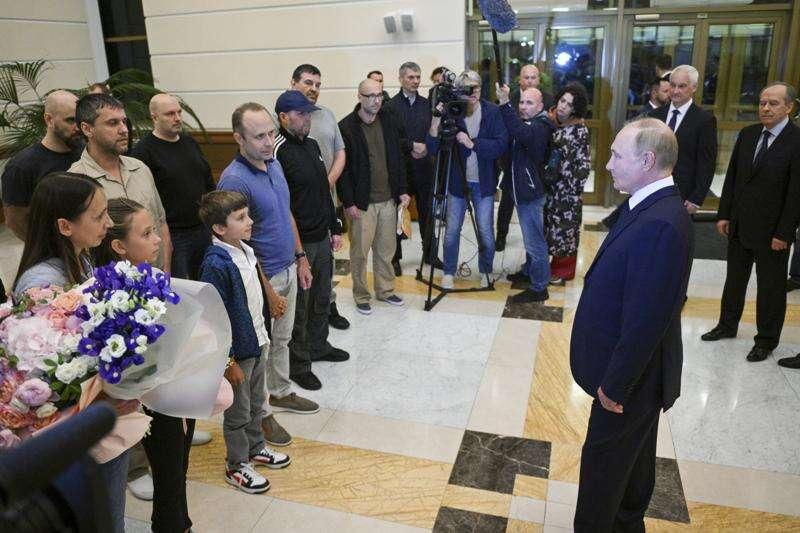Pivotal spy swap: Putin's two-year campaign to reclaim Krasikov succeeds History & politics behind swaps
The recent exchange of political prisoners between Russia and Western countries highlights the ongoing geopolitical tensions reminiscent of the Cold War. The most notable figure in this swap is Vadim Krasikov, a Russian assassin convicted in Germany for the murder of a Chechen dissident. His return to Russia marks the culmination of a two-year effort by President Vladimir Putin, underscoring the importance Moscow places on recovering its agents.
The significance of spy swaps
Spy swaps have long been a tool for states to manage diplomatic relations and protect their intelligence assets. These exchanges are not merely about retrieving citizens but about maintaining state secrets and signaling to operatives that the government stands behind them. In the case of Krasikov, his retrieval was particularly significant for Putin, who personally met him at the airport, drawing parallels with past Soviet-era espionage activities.

Swapping spies has deep roots in Cold War history, with notable exchanges like the Berlin Bridge swap in 1985 and the more recent exchange of Russian arms dealer Viktor Bout for American basketball player Brittney Griner in 2022. These exchanges serve as reminders of the enduring importance of espionage and the lengths to which states will go to protect their agents.
Since Vladimir Putin's rise to power in 2000, Russia has intensified its efforts to target individuals deemed threats to state security. This approach, rooted in the Soviet era and reaching its peak during Stalin's regime, involves a combination of assassination and espionage aimed at neutralizing opponents and those who undermine Russian interests abroad. While many operatives returned home rewarded, others faced legal repercussions. Krasikov's case underscores the darker side of these operations.
The Krasikov case: A detailed account
Vadim Krasikov's return to Russia achieved through an interstate exchange has been a focal point of Moscow's diplomatic efforts. Krasikov, who used the alias Vadim Sokolov, was involved in the assassination of Zelimkhan Khangoshvili, a Chechen field commander, in Berlin in 2019. The crime carried out with a pistol and bicycle in Little Taegarten Park was widely attributed to Russian state interests.
German authorities, after arresting Krasikov, prosecuted him in a high-profile trial that concluded with a life sentence in December 2021. The court's findings confirmed that the murder was state-sponsored, and aimed at sending a message of retribution. Krasikov's insistence on his false identity during the trial was disproved through extensive evidence, including his previous involvement in criminal activities and a history of evading justice.
The process of Krasikov’s exchange highlights the intricate nature of international diplomacy. Initially, there were discussions about swapping Krasikov for Alexei Navalny, a prominent Russian opposition leader. However, Navalny's death in prison altered these plans. The exchange eventually involved multiple high-profile figures, reflecting a broader trend of using political prisoners as bargaining chips.

In August 2023, a significant exchange took place at Ankara airport, facilitated by Turkish authorities. Russia handed over 16 political prisoners to the West, while eight individuals, including Krasikov, were returned to Russia. This exchange was seen as a strategic move by Russia to gain leverage and reaffirm its position on the global stage.
The Krasikov case is part of a broader historical pattern of high-stakes exchanges between states. During the Cold War, such exchanges were emblematic of the ideological divide between East and West. Notable exchanges include the 1962 Berlin Bridge swap and the 1985 exchange of spies and political prisoners. These events illustrated the geopolitical tensions and the value placed on intelligence and political prisoners.
In the post-Cold War era, exchanges have continued, with notable cases such as the 2010 Vienna exchange and various recent swaps involving the US and Russia. These exchanges reflect ongoing geopolitical rivalries and the importance of maintaining diplomatic channels despite tensions.
Political prisoners, whether spies, dissidents, or state operatives, hold significant symbolic and strategic value. The case of Vadim Krasikov exemplifies how such individuals are used by states to signal power and resolve. Krasikov's return was not just a matter of personal freedom but a demonstration of Russia's commitment to its operatives and its ability to influence international negotiations.
Conclusion: The continuing divide
The exchange of political prisoners is more than a humanitarian gesture; it is a strategic move in the chess game of international relations. The recent swap involving Vadim Krasikov is a stark reminder of the lengths to which states will go to retrieve their operatives, ensuring that those who serve their country in the shadows are not forgotten.

The exchange of political prisoners between Russia and Western countries underscores the persistent ideological and geopolitical divides that continue to shape international relations. Despite the end of the Cold War, the world remains divided into spheres of influence where espionage, political dissent, and state-sponsored violence play crucial roles.
The successful exchange of Krasikov and other Russian agents sends a clear message to those working within Russian intelligence: the state will go to great lengths to protect its own. This operation also highlights the ongoing political and ideological divisions between Russia and the West, a dynamic that continues to shape global affairs.
The Krasikov case, alongside other high-profile exchanges, highlights the complexities of modern diplomacy and the enduring significance of political prisoners in global politics.








